2017 Experts

Keynote Address by Jack Matlock
Mr. Jack Matlock, a retired diplomat, has held academic posts since 1991: Sol Linowitz Professor of International Relations, Hamilton College, 2006; visiting professor and lecturer in public and international affairs at Princeton University, 2001-2004; George F. Kennan Professor at the Institute for Advanced Study, 1996 - 2001; Senior Research Fellow and then Kathryn and Shelby Cullom Davis Professor in the Practice of International Diplomacy at Columbia University, 1991 to 1996. During his 35 years in the American Foreign Service (1956-1991) he served as Ambassador to the Soviet Union from 1987 to 1991, Special Assistant to the President for National Security Affairs and Senior Director for European and Soviet Affairs on the National Security Council Staff from 1983 until 1986, and Ambassador to Czechoslovakia from 1981 to 1983.
Before his appointment to Moscow as Ambassador, Mr. Matlock served three tours at the American Embassy in the Soviet Union, as Vice Consul and Third Secretary (1961-63), Minister Counselor and Deputy Chief of Mission (1974-1978), and Chargé d’Affaires ad interim in 1981. His other Foreign Service assignments were in Vienna, Munich, Accra, Zanzibar and Dar es Salaam, in addition to tours in Washington as Director of Soviet Affairs in the State Department (1971-74) and as Deputy Director of the Foreign Service Institute (1979-80). Before entering the Foreign Service Mr. Matlock was Instructor in Russian Language and Literature at Dartmouth College (1953-56). During the 197879 academic year he was Visiting Professor of Political Science at Vanderbilt University.
He is the author of Reagan and Gorbachev: How the Cold War Ended (Random House, 2004, paperback edition 2005); Autopsy on an Empire: The American Ambassador’s Account of the Collapse of the Soviet Union (Random House, 1995); and a handbook to the thirteen-volume Russian edition of Stalin’s Collected Works (Washington, D.C. 1955, 2nd edition, New York, 1971).
Mr. Matlock was born in Greensboro, North Carolina, on October 1, 1929, and was educated at Duke University (AB, summa cum laude, 1950) and at Columbia University (MA and Certificate of the Russian Institute, 1952). He has been awarded honorary doctorates by four institutions. In addition to the books noted, he is the author of numerous articles on foreign policy, international relations, and Russian literature and history.

Bruce Allyn
Bruce Allyn is a Senior Fellow and Affiliated Faculty, Harvard Negotiation Project, Harvard Law School. In the 1980s, he was a Director of the Harvard-Soviet Joint Study on Nuclear Crisis Prevention. He is currently a negotiation expert in the Harvard-Russian Working Group on the Future of US-Russian Relations.
Allyn received his PhD in Political Economy and Government from Harvard, an M.A. in Soviet Studies from Harvard and an M.A. in Politics and Philosophy from Oxford University. He graduated from Dartmouth College summa cum laude in Government and Russian.
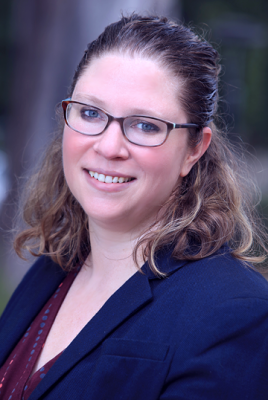
Melissa Hanham
Melissa Hanham is a Senior Research Associate in the East Asia Nonproliferation Program (EANP). Her regional interests include the denuclearization of the Korean Peninsula, North Korean WMD procurement and proliferation networks, China’s nuclear posture, and East Asian security. She also studies Chinese, South Korean, and Japanese nuclear exports, as well as East and Southeast Asian export control systems.
Melissa supports CNS’ research by investigating new techniques in open source geospatial analysis, incorporating imagery and other remote sensing data, large data sets, social media, 3D modeling, and GIS mapping. She teaches “Open Source Analysis for Nonproliferation and Terrorism Studies” at the Middlebury Institute of International Studies, and is a regular contributor to Arms Control Wonk and Bellingcat.
Additionally, she assists the Export Control and Nonproliferation Project with research on proliferation financing and money laundering.

Seigfried Hecker
Siegfried S. Hecker is a professor (research) in the Department of Management Science and Engineering and a senior fellow at the Freeman Spogli Institute for International Studies (FSI) at Stanford University. He was co-director of CISAC from 2007-2012.
From 1986 to 1997, Dr. Hecker served as the fifth Director of the Los Alamos National Laboratory. Dr. Hecker is an internationally recognized expert in plutonium science, global threat reduction, and nuclear security. Dr. Hecker joined Los Alamos National Laboratory as graduate research assistant and postdoctoral fellow before returning as technical staff member following a tenure at General Motors Research. He led the laboratory’s Materials Science and Technology Division and Center for Materials Science before serving as laboratory director from 1986 through 1997, and senior fellow until July 2005.
Dr. Hecker’s research interests include plutonium science, nuclear weapons policy, nuclear security, and the safe and secure expansion of nuclear energy. Over the past 20 years, he has fostered cooperation with the Russian nuclear laboratories to secure and safeguard the vast stockpile of ex-Soviet fissile materials.
Dr. Hecker’s research projects at CISAC focus on reducing the risks of nuclear terrorism worldwide and the challenges of nuclear India, North Korea, Pakistan, and the nuclear aspirations of Iran. Dr. Hecker has also published a two-volume book on the history of Russian-U.S. laboratory-to-laboratory cooperation since 1992.
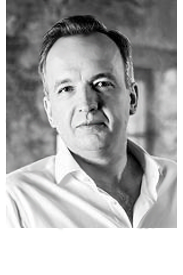
Evgeny Lavrentyev
Evgeny Lavrentyev is the general producer for the film company “Impressions Productions,” as well as the director, producer, and screenwriter (with different roles for different projects) for the films Lichnyj nomer, Mechtat’ ne vredno, Rokovoe nasledstvo, the series Barvikha, Amazonki, Chernye koshki, Karina krasnaya, and many others. He studied economics at Moscow State University, completing the higher course for screenwriters and directors, and worked at the studio of director V. Ya. Motyl’ on the film Beloe solutes pustyni.
The film Lichnyj nomer (for which Lavrentyev served as producer-director and co-screenwriter) won the Gran Prix at the Ozerova festival for war films. It has been distributed in more than 60 countries, where it was shown in commercial movie theaters.
The series and made-for-tv movies have been shown many times including on the central channels of Russia, Ukraine, Belarus, Kazakhstan, and other Russian language channels around the world. “Impressions Productions” also shot the film presenting St. Petersburg in the fight for the right to host the European Football Championships in 2020. St. Petersburg won the right to host the quarter finals.
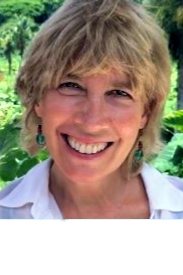
Cynthia Lazaroff
Cynthia Lazaroff is a filmmaker and founder of numerous U.S.-Russian exchanges. She was Director of Creative Affairs at Armand Hammer Productions and has supervised film and television projects including Mother Russia, The Last Russian Tsar, The Cuban Missile Crisis and Hiroshima. In 1983 she co-founded the US-USSR Youth Exchange Program and catalyzed exchanges in art, literature, theater, education, film, wilderness adventures, urban leadership and environmental service.
Presently, she is Executive Vice-President of the Planetary Coral Reef Foundation where she is directing an international campaign to advance awareness about coral reefs, the endangered “rainforests of the sea,” and promote action for their preservation and restoration.
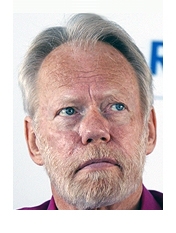
Robert Legvold
Robert Legvold is Marshall D. Shulman Professor Emeritus in the Department of Political Science at Columbia University, where he specialized in the international relations of the post-Soviet states. He was Director of The Harriman Institute, Columbia University, from 1986 to 1992.
Dr. Legvold’s areas of particular interest are the foreign policies of Russia, Ukraine, and the other new states of the former Soviet Union, U.S. relations with the post-Soviet states, and the impact of the post-Soviet region on the international politics of Asia and Europe.
Legvold is a former trustee of the Carnegie Endowment for International Peace,and a member of various advisory boards, including those of the Committee on International Security Studies of the American Academy of Arts and Sciences, the Watson Institute for International Studies at Brown University, and the Foundation for International Peace and Democracy, led by Mikhail Gorbachev. He is a fellow of the American Academy of Arts and Sciences and a foreign member of the Russian Academy of Social Sciences.
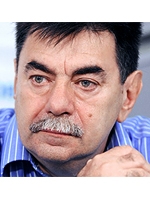
Emil Pain
Dr. Pain is General Director of the Centre for Ethno-Political Studies and Professor in political science at the National Research University, Higher School of Economics. Dr. Pain has published 13 books and over 400 articles, focusing on nationality politics, ethnic conflicts and terrorism problems in Russia, the Caucasus, and Central Asia. He was an Adviser on Nationality Issue to the Russian President B. Yeltsin in 19961999, and a Galina Starovoitova Fellow on Conflict Resolution at the Kennan Institute in Washington from 2000-2001. On September 16, 2004, the European Foundation “TOLERANCE” award Emil Pain a gold medal “For transcendent merits in sociological and historical studies promoting resolution of ethnic conflicts in Russian regions”.
Prior to his Directorship with the Higher School of Economics, Dr. Pain was a Senior Academic Advisor at the Kennan Institute in Russia and a Professor of Political Science at HSE. Previously, he was the Head of the Center for Extremism Studies at the Institute of Sociology of the Russian Academy of Science. Before working as an Advisor to President Yeltsin, Dr. Pain was the Deputy Director of the Presidential Analytical Service of the Russian Federation, and also headed the Group on Nationality Problems for the Presidential Council of the Russian Federation.
Dr. Pain has a Ph.D. in Political Science from Moscow State University, and a Master’s of Science in History from Voronezh State University. He also carried out doctoral work in History at the Russian Academy of Sciences Institute of Ethnography.
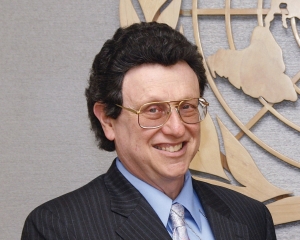
William Potter
Dr. Potter is Sam Nunn and Richard Lugar Professor of Nonproliferation Studies and Founding Director of the Center for Nonproliferation Studies at the Middlebury Institute of International Studies at Monterey.
He is the author or editor of over 20 books, including two volumes on Forecasting Nuclear Proliferation in the 21st Century (Stanford University Press, 2010), The Global Politics of Combating Nuclear Terrorism (Routledge, 2010), Nuclear Politics and the Non-Aligned Movement (Routledge, 2012), and Preventing Black Market Trade in Nuclear Technology (Cambridge University Press, forthcoming 2017). Dr. Potter has served on numerous committees of the US National Academy of Sciences and for five years was a member of the UN Secretary-General’s Advisory Board on Disarmament Matters. He has been an advisor to the delegation of Kyrgyzstan at every NPT Review Conference and Preparatory Committee meeting since 1995.
He is renowned for his work on disarmament and nonproliferation education, and is regarded as one of the world’s leading authorities on the use of simulations for pedagogical purposes.
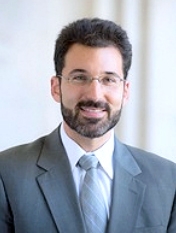
Matthew Rojansky
Matthew Rojansky is the Director of the Kennan Institute, as well as an adjunct professor at both Johns Hopkins SAIS and American University. He is an expert on U.S. relations with the states of the former Soviet Union, especially Russia, Ukraine, Belarus and Moldova.
Matthew Rojansky has advised governments, intergovernmental organizations, and major private actors on conflict resolution and efforts to enhance shared security throughout the Euro-Atlantic and Eurasian region. Prior to entering his role with the Kennan Institute, from 2010 to 2013, He was Deputy Director of the Russia and Eurasia Program at the Carnegie Endowment for International Peace. There, he founded Carnegie’s Ukraine Program, led a multi-year project to support U.S.-Russia health cooperation, and created a track-two task force to promote resolution of the Moldova-Transnistria conflict.
From 2007 to 2010, Rojansky served as executive director of the Partnership for a Secure America (PSA), where he worked on issues relating to arms control and nonproliferation. Founded by former congressman Lee Hamilton (D-IN) and former senator Warren Rudman (R-NH) with a group of two dozen former senior leaders from both political parties, PSA seeks to rebuild bipartisan dialogue and productive debate on U.S. national security and foreign policy challenges. While at PSA, Rojansky orchestrated high-level bipartisan initiatives aimed at repairing the U.S.-Russian relationship, strengthening the U.S. commitment to nuclear arms control and nonproliferation, and leveraging global science engagement for diplomacy.
Matthew Rojansky serves as U.S. Executive Secretary for the Dartmouth Conference, a track-two U.S.-Russian conflict resolution initiative begun in 1960. He has lectured at colleges and universities throughout the United States, Russia and Europe. He is frequently interviewed on TV and radio, and his writing has appeared in the International Herald Tribune, the Washington Post, and Foreign Policy.

Ksenia Semenova
Ksenia Semenova is a journalist, editor, and public relations expert. She is currently Global Community Director at the Q&A service The Question. She also contributes to the analytical firm Stratfor and online journal Legal Dialogue.
Before that, she worked as a contributing writer for the Institute of Modern Russia. Her piece titled “A New Wave of Emigration: The Best Are Leaving” was selected as one of the institute’s top 10 analyses of 2015. Until 2012, Ms. Semenova was chief editor of the New York office of Snob Magazine, covering a range of topics from sports to politics and writing a column about life in New York City.
After her graduation from the Lomonosov Moscow State University in 2006, Ms. Semenova started to work as a public relations specialist at the Contemporary Art Center Winzavod, the first private art cluster then. She became its first PR Director and witnessed the establishment of art clusters in Moscow, Saint Petersburg, Perm, and other cities. Though she later started to work as a journalist, she never left the contemporary art sphere, being involved in a few significant art projects as a PR person.

Natalia Sevagina
Natalia Sergeyevna Sevagina is an Associate in the Research and Education division of the State Tretyakov Gallery in Moscow. She completed her undergraduate education at the Russian Academy of Painting, Sculpture and Architecture in Moscow, as well as the Novoaltay College of Art and the Republican Art School in Tallinn. She received her master’s degree from the Russian Academy of Painting, Sculpture, and Architecture in Moscow. Prior to joining the staff at the Tretyakov Gallery, Sevagina taught art history, painting and drawing in secondary and tertiary educational institutions of the City of Moscow. She then served for ten years as a senior research associate at the Ilya Glazunov State Art Gallery.
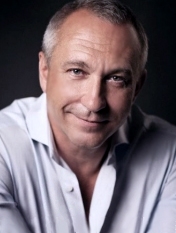
Alexey Sitnikov
Alexey P. Sitnikov, Ph.D. (psychology) - a founder and a president of a major think tank in Russia, ICCG, a founder of Triangle Consulting Group. Dr. Sitnikov is a head of the Political advising and electoral technologies department in the State University – Higher school of economics (SU-HSE) and a research advisor of the Institute of Communication Management at SU-HSE, a member of the Highest Expert Council of the Russian Public Relations Association, a vice president of the ICCO-Russia and a President of the National Academy of Social Technologies (Russia).
Author of 11 monographs published in Russia and Poland. ICCG (founded in 1989) provides expert services in public relations, political consulting and lobbying. It has executed more than 400 electoral campaigns, over 350 information and PR campaigns, research, socio-political and lobbying projects and over 200 workshops and training sessions, consulting programs in Russia and abroad.
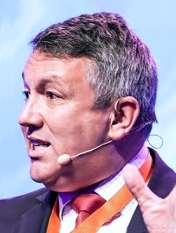
Stephan De Spiegeleire
Stephan has worked as a defense and security analyst at the RAND Corporation for nearly 10 years, interrupted by 3-year stints at SWP (Germany) and the WEU’s Institute for Security Studies (France). Since 2004 he works in research institutes in the Netherlands (Principal Scientist at HCSS and Senior Advisor Defense and Security at TNO) and also teaches at Webster University and at military academies across the world. Stephan’s current main research area is international defense and security planning, with a special focus on security foresight, risk assessment, (comprehensive) capabilities based planning, strategic balance of investment, performance management, human-centered defense design. He still maintains an active interest and research portfolio on post-Soviet issues, especially pertaining to Russia and Ukraine.
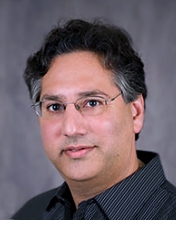
Adam Stulberg
Dr. Stulberg is Professor and Neal Family Chair; Associate Chair/Research; and Co-Director, Center for International Strategy, Technology, and Policy (CISTP) in the Sam Nunn School of International Affairs. He teaches undergraduate and graduate courses on international security, Russia/Eurasian politics and security affairs, nuclear (non)proliferation, and energy and international security, as well as inter-disciplinary courses on science, technology, and international security policy. His current research focuses on the geopolitics of oil and gas networks, energy security dilemmas and statecraft in Eurasia, Russia and “gray zone” conflicts, new approaches to strategic stability and denuclearization of military arsenals, internationalization of the nuclear fuel cycle, and implications of emerging technologies for strategic stability and international security.
Dr. Stulberg earned his Ph.D. in Political Science from the University of California, Los Angeles (UCLA), as well as holds an M.A. in International Affairs from Columbia University, an M.A. in Political Science from UCLA, and a B.A. in History from the University of Michigan. He served as a Political Consultant at RAND from 1987-1997, and as a Senior Research Associate at the Center for Nonproliferation Studies (CNS), Middlebury Institute of International Studies at Monterey (1997-1998). He has worked closely with former Senator Sam Nunn drafting policy recommendations and background studies on future directions for the U.S. Cooperative Threat Reduction Program, building regional and energy security regimes in Central Asia and the South Caucasus, and engaging Russia’s regional power centers. Dr. Stulberg was a post-doctoral fellow at CNS; policy scholar at the EastWest Institute; and has been a consultant to the Carnegie Corporation of New York and the Office of Net Assessment, Office of the U.S. Secretary of Defense. Dr. Stulberg has authored and edited four books, and has published widely in leading academic and policy journals. In addition, he served on the Executive Committee of the Nuclear Nonproliferation Technical Group, American Nuclear Society.
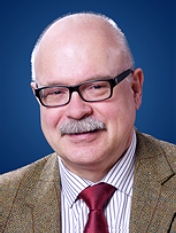
Dmitri Trenin
Dr. Trenin, Director of the Carnegie Moscow Center, is chair of its Foreign and Security Policy Program. He has been with the Carnegie Moscow Center since its inception in 1993.
He retired from the Russian Army in 1993. From 1993–1997, Trenin held a post as a senior research fellow at the Institute of Europe in Moscow. In 1993, he was a senior research fellow at the NATO Defense College in Rome.
He served in the Soviet and Russian armed forces from 1972 to 1993, including experience working as a liaison officer in the external relations branch of the Group of Soviet Forces (stationed in Potsdam) and as a staff member of the delegation to the U.S.-Soviet nuclear arms talks in Geneva from 1985 to 1991. He also taught at the War Studies Department of the Military Institute from 1986 to 1993.
Dr. Trenin’s lectures addressed U.S.-Russian relations, Russian foreign policy, and the enduring significance of Russia to the United States.
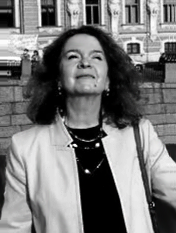
Vera Trenina
Vera Trenina is Associate Professor at the Moscow Linguistic University (MGLU). Prior to that, she worked at the Moscow Institute of International Relations (MGIMO) and at the Higher Courses for Foreign Languages under the Ministry for Foreign Trade.
She is an author, researcher and translator. Born in Moscow and a graduate of Moscow State University, she has lived in Germany, Italy, Belgium, and the United States. She is married to Dmitri Trenin of the Carnegie Moscow Center. They live in Moscow and have two grown sons.

Feodor Voitolovsky
Dr. Feodor Voitolovsky is a corresponding member and professor of the Russian Academy of Sciences, as well as acting Director at the Institute of World Economy and International Relations of the Russian Academy of Sciences (IMEMO). He has been one of the leading experts of IMEMO’s forecasting program and is also a professor in the department of Political Science at MGIMO University. He is a Next Generation Hurford Fellow with the Carnegie Endowment’s Euro-Atlantic Security Initiative. His research interests include U.S. foreign and security policy, transatlantic relations, Russia-NATO relations, and wider political and security issues in the context of international institutions. Dr. Voitolovsky serves on the editorial board of the World Economy and International Relations journal. He was also an editorial board member and co-author of IMEMO’s “Strategic Global Forecast—2030.” In 2012 and 2013 he co-authored IMEMO’s annual forecasts on “Russia and the World: Economy and Foreign Policy.” He is the author of a 2008 monograph Unity and Division of the West, and has published about 80 articles and chapters in books. Dr. Voitolovsky is also an editorial board member of the “World Economy and International Relations” journal.

Sergei Zakharov
Sergei Zakharov is the Deputy Director of the Institute of Demography (IDEM) at the Research State University Higher School of Economics (HSE). He is head of the HSE research group, “Analysis of Fertility and Family Formation in Russia Based on Data from Sample Surveys,” and his research interests include first and second demographic transitions, fertility and family planning in Russia, transformation of family formation patters, and demography of Russian generations.
Professor Zakharov began his career as an Assistant Professor and Chair of Health Statistics at the Centeral Institute for Advanced Medical Studies at the USSR Ministry of Public Health in the 1980s. Immediately prior to becoming deputy director of the Institute of Demography at HSE, he was the head of the Laboratory of Population Estimates and Projections at the Center for Demography and Human Ecology from 1993-2006.
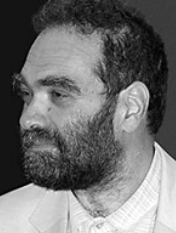
Andrei Zorin
Andrei Zorin is a Professor of Russian and a Fellow of New College at Oxford University as well as a professor in the Russian Presidential Academy of National Economy and Public Administration. He is a member of the editorial boards of the journals «New Literary Observer», «Slavic Review», and «Cahiers de Monde Russe». His areas of specialization are Russian Literature and Russian Cultural History, especially of the XVIII- XIX centuries. His research includes Russian literature and culture of the 18th – beginning of the 19th centuries in the European context, the cultural history of emotions, and the history of the cultured community in Russia and in the USSR. Dr. Zorin graduated from Moscow State University (1978) and completed his Dissertation (1983) and Habilitation (2000) also at Moscow State University.

Irina Zorina
Irina Zorina, since 2004 teaches Prose classes (translation of English prose into Russian) and Russian, including cultural analysis of Russian texts at the University of Oxford. Graduated from the philological faculty of Moscow State University (MGU). Specializations: English and Scandinavian literature. In 1986-1990 worked as a curator of joint cultural projects between Russia and Scandinavian countries. For promotion of modern Scandinavian literature in Russian speaking countries received several awards, including The Swedish Ministry of Culture Award, The Award of the Finnish Literature Society and The Danish Ministry of Culture Award. In 1993 was a columnist of the Swedish newspaper “Hufvudstadbladet” (Helsinki). In 1994-2004 was a director of the Russian program of the international non-governmental organization “Civic Education Project”, which supported humanities in the universities of the former Soviet Union and Eastern Europe. Translated a number of books from English and Scandinavian languages, among which are “Comrade Pavlik: The Rise and Fall of a Soviet Boy Hero” by Catriona Kelly (from English) and “Sommarboken” by Tove Jansson (from Swedish).
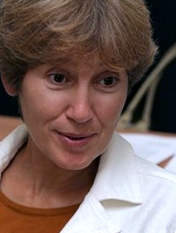
Natalia Zubarevich
Natalia Zubarevich is Russia’s leading expert on social and economic development of regions, social and political geography, and urban development. She is a professor at the Department of Geography of the Moscow State University and director of the regional program at the Moscow-based Independent Institute for Social Policy.
Zubarevich is a member of the Expert Board of the Russian government and has directed programs for several Russian ministries. In 1997-2012, she was an expert of the UN Development Program (Russia). She also authored a number of reports on the development of human resources in Russia for the International Labor Organization and research reports for the Social Development Foundation (World Bank).
